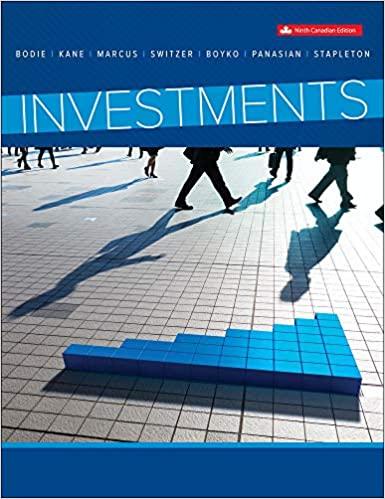Question
1. Zenith Investment Company is considering the purchase of an office property. It has done an extensive market analysis and has estimated that based on
1. Zenith Investment Company is considering the purchase of an office property. It has done an extensive market analysis and has estimated that based on current market supply/demand relationships, rents, and its estimate of operating expenses, annual NOI will be as follows: Year NOI 1 $1,000,000 2 1,000,000 3 1,000,000 4 1,200,000 5 1,250,000 6 1,300,000 7 1,339,000 8 1,379,170 A market that is currently oversupplied is expected to result in cash flows remaining flat for the next three years at $1,000,000. During years 4, 5, and 6, market rents are expected to be higher. It is further expected that beginning in year 7 and every year thereafter, NOI will tend to reflect a stable, balanced market and should grow at 3 percent per year indefinitely. Zenith believes that investors should earn a 12 percent return (r) on an investment of this kind.
a) Assuming that the investment is expected to produce NOI in years 1-8, is expected to be owned for seven years and then sold, what would be the value for this property today? (Hint: Begin by estimating the reversion value at the end of year 7. Recall that the expected IRR=12% and the growth rate (g) in year and beyond is estimated to remain level at 3%.)
b) What would be the terminal capitalization rate (RT) be at the end of year 7?
c) What would be the going-in capitalization rate (R) be based on year 1 NOI? d) What explains the difference between the going-in and going-out (terminal) cap rates?
Step by Step Solution
There are 3 Steps involved in it
Step: 1

Get Instant Access to Expert-Tailored Solutions
See step-by-step solutions with expert insights and AI powered tools for academic success
Step: 2

Step: 3

Ace Your Homework with AI
Get the answers you need in no time with our AI-driven, step-by-step assistance
Get Started


